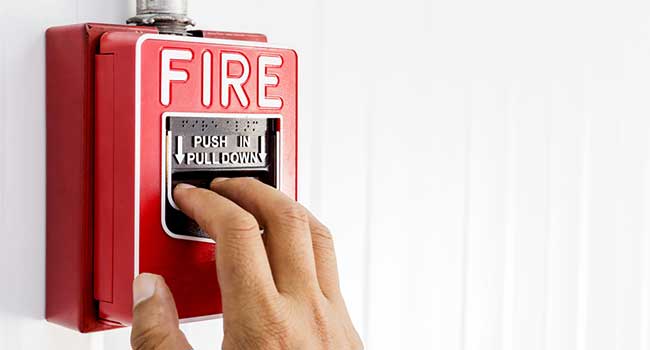
Northern Michigan University Issues Fire Safety Reminders for Students Living on Campus
Fire safety tips for students living on campus.
- By Sydny Shepard
- September 06, 2018
College students are officially settled in dorms and learning their new routines on campus. For Northern Michigan University officials, the first thing they plan to address is fire safety.
"I think we have been a leader on fire safety in the state, in terms of our residence halls, for many years," Director of Housing and Residence Life at NMU, Jeff Korpi, said.
Korpi says NMU is one of the first schools in the state and in the region to have their entire residence hall rooms fully equipped with sprinklers in every room. The school started that project in early 2000's and continued the practice in newly built residence halls.
“We follow all the state and federal requirements here on campus for fire alarm and device testing, making sure the systems work prior to school starting,” said campus Fire and Security Specialist, Lee Gould. “We train all the students with that, and they get an email every year telling that what to do—if the fire alarm goes off, evacuate the buildings.”
NMU says they are prepared to handle situations involving fire, but are ensuring that students are aware of how to be safety and prevent a disaster in the first place.
Here are a few steps students can take to avoid a fire:
- Ensure your room as a smoke alarm. Never disable or remove its batteries.
- Never have an open flam in your dorm room.
- Don't overload electrical outlets.
- Do not cover lights with curtains or tapestries.
- Leave cooking food unattended.
- Ensure you are ironing clothes on surfaces that are not flammable.
If the fire alarm does go off, students need to ensure they know the evacuation plan. Get out of your dorm quickly and stay out.
About the Author
Sydny Shepard is the Executive Editor of Campus Security & Life Safety.